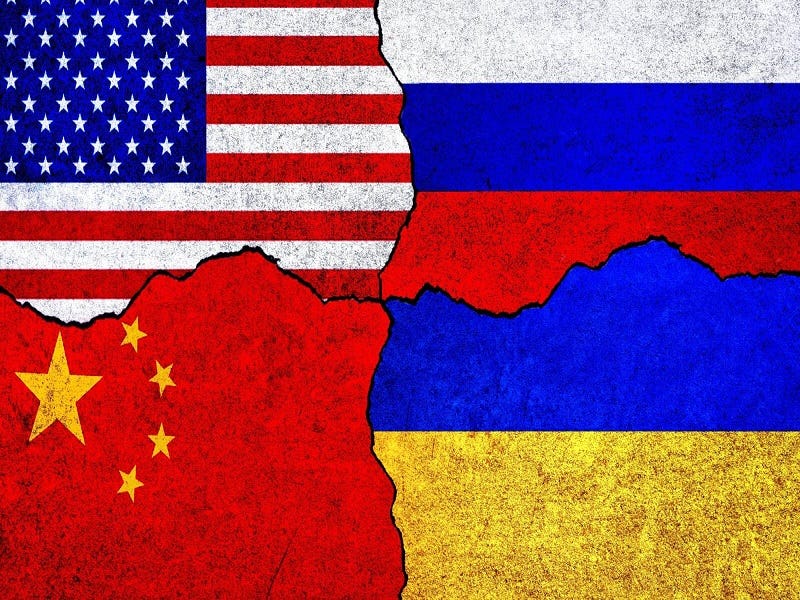This places the possibility of China arming Russia into context, thus preemptively debunking whatever weaponized information warfare narratives the West might spew in response to that scenario.
One of the top questions in contemporary International Affairs is whether China is indeed recalibrating its approach to the NATO-Russian proxy war in Ukraine, which was prompted by the US and Germany warning that it’s seriously considering arming Moscow and thus risking sanctions. While it remains unclear whether China will ultimately send lethal aid to its strategic partner, there’s now no doubt that the People’s Republic does indeed consider the Ukrainian Conflict as a means of indirectly containing it.
Chinese envoy to the EU Fu Cong confirmed this assessment in an exclusive interview with Global Times that was published on Thursday. Here’s the relevant excerpt to this effect: “Some people are fueling the fire. In my opinion, the biggest ‘black hand’ behind the scenes is the US, and it is also the biggest beneficiary. As long as the Ukraine conflict continues, it will help the US with its policies of weakening Russia, controlling Europe and containing China. The American arms industry would make a fortune.”
He didn’t elaborate on how the conflict advances the US’ quest of containing China, but the insight that I previously shared about this subject prior to Ambassador Fu’s subsequent confirmation sheds some light into his country’s evolving military-strategic calculations towards the NATO-Russian proxy war:
* 15 March 2022: “Why Did The U.S. Prioritize Containing Russia Over China?”
* 26 February 2023: “China Compellingly Appears To Be Recalibrating Its Approach To The NATO-Russian Proxy War”
* 28 February 2023: “Just How Drastically Would The World Change If China Armed Russia?”
* 1 March 2023: “Germany Is Lying: Chinese Arms Shipments To Russia Wouldn’t Violate International Law”
* 2 March 2023: “Towards Tri-Multipolarity: The Golden Billion, The Sino-Russo Entente, & The Global South”
The US regarded Russia as weaker than China, ergo why it tried to contain the former first in order to facilitate containing the latter. The US wanted to neutralize Russia’s nuclear second-strike capabilities via “missile defense” systems in Ukraine, wage a proxy war against it there, then “Balkanize” Russia.
China didn’t seem to immediately interpret events in such a way otherwise it would have risked the West’s sanctions wrath a lot earlier in order to ensure a decisive Russian victory right away instead of waited over a full year to seriously consider doing so. The reasons behind why its approach towards that conflict evolved are explained in the relevant hyperlinked analysis above but mostly had to do with the unexpected end of the “New Détente” in early February after the balloon incident.
The larger military-strategic dynamics are beyond the scope of the present analysis to describe, the purpose of which is only to prove that China has indeed recalibrated its approach to the NATO-Russian proxy war in Ukraine as evidenced by Ambassador Fu’s assessment that it serves to contain his country. This places the possibility of China arming Russia into context, thus preemptively debunking whatever weaponized information warfare narratives the West might spew in response to that scenario.





Pretty sure sanctioning China would harm the US more than China lmao. I'd like to see them try
Another great anlysis!